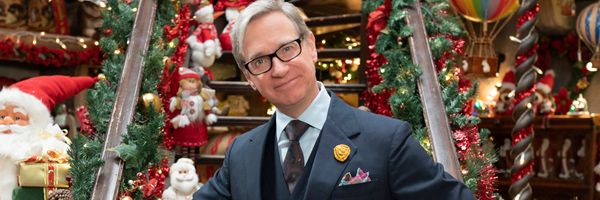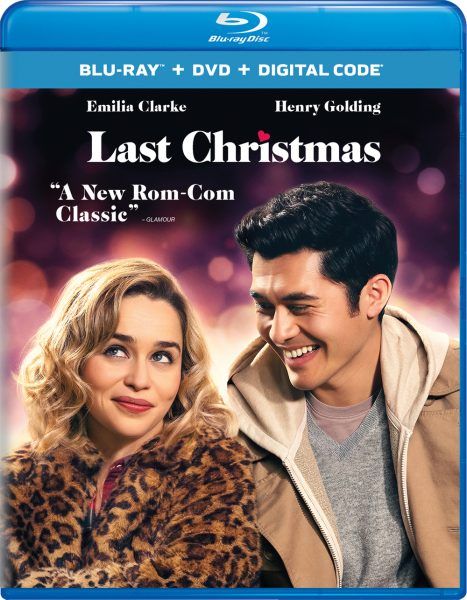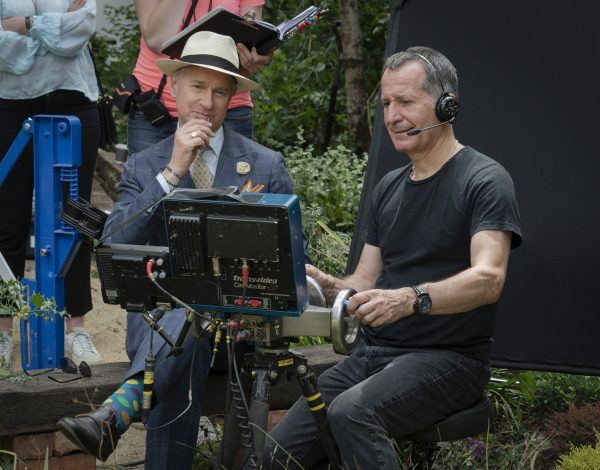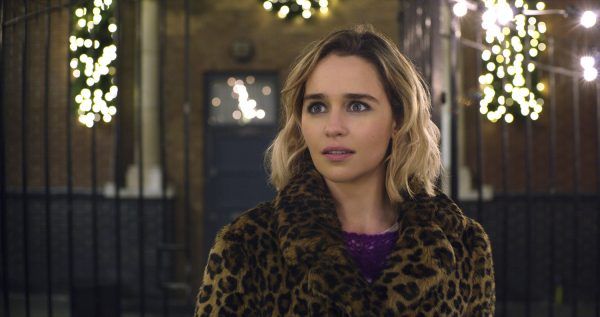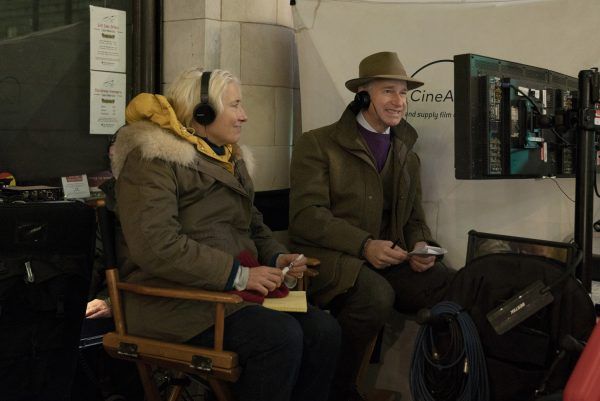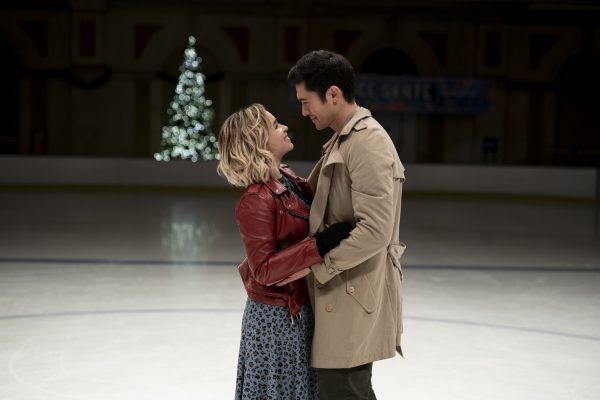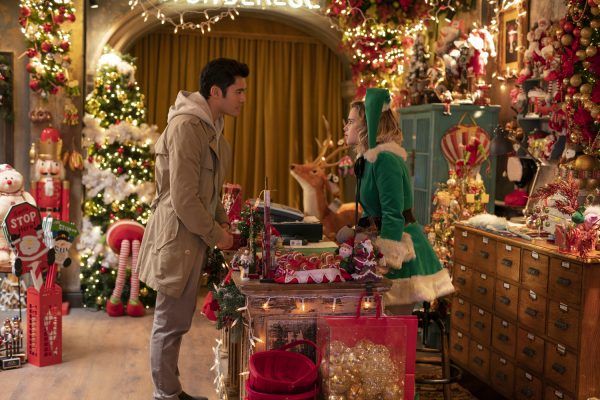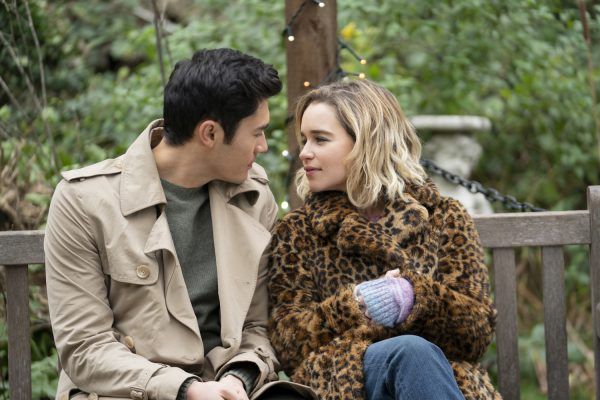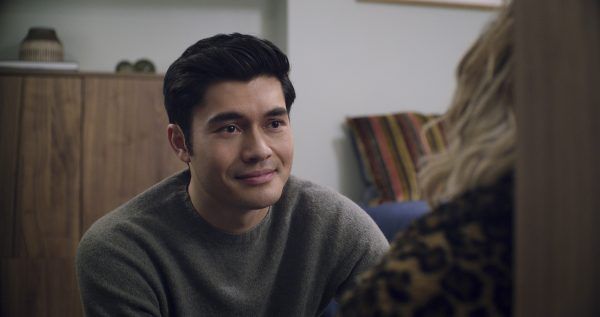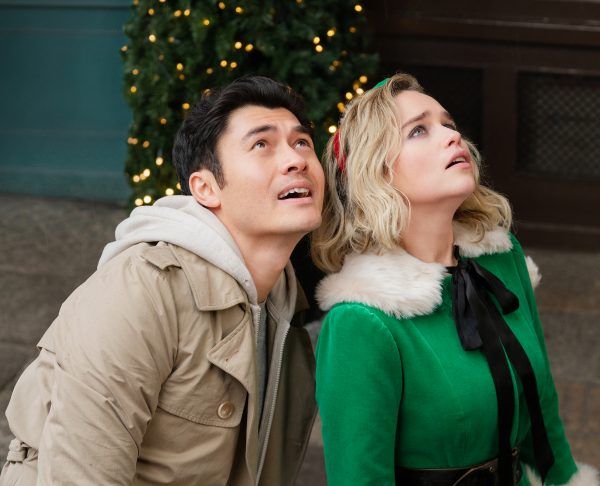Filmmaker Paul Feig is one of the few directors who’s proved adept at not only navigating various genres, but maintaining a visual, cinematic flair while doing so. The co-creator of Freaks and Geeks is responsible for helming some of the most memorable episodes of The Office, but he first made a splash on the feature film stage with the 2011 comedy classic Bridesmaids. He followed that up with a pair of terrifically rewatchable comedies—The Heat and Spy—and then steered the unfairly “divisive” reboot of Ghostbusters. The latter film was unjustly mired in toxic fandom, but the movie itself was a hilarious, colorful, and ultimately successful update that paved a fresh path forward for the franchise.
Alas, a Ghostbusters sequel never materialized, but Feig continued pushing himself as an artist, next helming the delicious suburban noir A Simple Favor. That movie showcased Feig’s biggest change in genre yet, as he walked the line between tense thriller and dark comedy to tremendously entertaining results. And then most recently, Feig tackled another difficult genre: the “Christmas movie.”
Last Christmas is based on an original story by Emma Thompson and Greg Wise, with Thompson and Bryony Kimmings handling screenplay duties. The film stars Emilia Clarke as a frustrated and disillusioned Christmas store worker living in London named Kate who can’t seem to get her life together. She keeps running into a charming, selfless man named Tom (Henry Golding), and as the film progresses, Kate finally begins to look inward and show some personal growth.
With Last Christmas now available on Digital HD, Blu-ray, and DVD—just in time for Valentine’s Day—I recently got the opportunity to speak with Feig for an extended phone interview. Our wide-ranging conversation touched on the alternate ending and alternate opening that are included as bonus materials on the home video release, as well as what Feig learned from test screenings that then impacted the film’s reshoots. He also spoke warmly of the experience of working with Thompson on the film, and we talked about his visual style as a filmmaker and how London provided a unique challenge for Feig and his team that turned out to be a gift.
And for those who have seen the film, we got into spoilers about that big twist and the film’s ending. Feig was candid in discussing the reaction to the film’s first trailer, which saw many attempting to predict and pick apart the big twist, and he discussed the challenge of marketing his movies—specifically deciding how much to reveal in the trailers. And before I could let Feig go I had to ask about his upcoming Universal monster movie Dark Army, for which he provided a promising update.
If you’re at all interested in the process of making a commercial movie, or how Feig has managed to maintain a cinematic style through all of his films, or how the filmmaking team felt about handling the film’s twist in the marketing, I think you’ll find this interview enlightening. As a fan of Feig’s work for a long time, it came as no surprise to learn that the filmmaker is as insightful as he is charming.
As someone who still buys and loves physical media, I really appreciate that this one is packed with bonus features on it.
PAUL FEIG: Oh thanks. I appreciate that. That's why I always vowed in my career I will always pack Blu-ray, or DVD, or whatever with as much extras as I can, because I remember buying DVDs for years and it would say ‘Extra Features’ and it'd be like the trailer. And you're like, "Yeah, that sucks." So, I appreciate you saying that.
I wanted to dig into a couple of things on those bonus features real quick. First of all, it has an alternate ending that finds Kate kind of guiding a tour inspired by Tom's lookup catch phrase, and I was wondering if you could talk about why this ending was cut and kind of how you landed on the ending you guys have now.
FEIG: Well, originally that was the ending that came right after the concert, so the concert ended and then we were kind of four, six months later here she is doing this thing carrying on the lesson she learned from Tom. But what we found from our test audiences was that they didn't connect with it, because I don't really think they felt the connection enough to Tom from that, and so there was a lot of discontent about, well why she a tour guide? I’m very slavish about test audiences and kind of listening to what their hopes and dreams for a story are, what they're going to get out of it, and so really I just kind of felt like, "Well, let's do something else." And so then we shot some additional material and just thought, let's make it more about the family and healing this family and then see Kate healed, and so that's why we decided to come up with the family together and just having fun. We did want a little more comedy in the end, too. It's always nice to send people out with a laugh, and so we had a lot of fun playing with the dynamic and then how Emma's character was being herself. We like the idea that that family's healed, but still everybody has their issues and their weirdness, so it's not a perfect ending, like it never is in life. But we love the image of Kate just being kind of in a better place in the spring and summertime at that park. So that's where that came from.
I mean obviously you have this great gift of working with Emma Thompson on this film. After those test screenings, were you working with Emma to find that new ending?
FEIG: Yeah, yeah. There's a few things that we added an additional shoot for. Also, that whole opening sequence when she is in the bar getting picked up, because if you look in the special features, there's a thing that starts with her looking through this mail slot and yelling in to the woman whose boyfriend she just slept with, and so originally it went right from young Kate singing in the choir to a slam cut right into looking through this mail slot just being a mess. But again, our test audiences kind of felt like they just couldn't figure out who she was. They weren't getting enough backstory on who Kate is and why she was in that situation, and so we wrote that opening with Kate getting picked up in the bar and then the morning after to lead into the shower scene.
So, again, once you do these test screenings and you get this information about what people need and what they feel that they're lacking, then I get together with Emma and we just come up with these new scenes. Emma was the writer driving all this, so we would kind of discuss what we thought we needed, then she'd go off and write something, and then we'd kind of push it back and forth. But that's the fun part about just the way that this business can work and the storytelling at work. It's a fun collaboration to do that, to discover this stuff and not just go like, "Well, it is what it is." (laughs) We're always desperately trying to make it as good as it can be before we come out as opposed to like, "Well, okay. They had an issue with that, but we'll just let that slide." That's what's dangerous.
Well yeah, reshoots has become kind of a dirty word, but I feel like if it can make the movie better, and it also happens on almost every major movie nowadays, then why not take that opportunity to improve the film?
FEIG: Yeah, it's true. I used to be like, "Oh God, reshoot is such a badge of dishonor." But yeah now you learn that, no, it's not. It's really just the math in putting a movie together, and you just keep learning from that. So there's nothing wrong with additional photography, as we call it now (laughs).
Emma Thompson is this national treasure. She's this incredible screenwriter, incredible actress, incredible mind. What's it like for you as a director to have her as your screenwriter and one of your supporting actresses on board?
FEIG: It's amazing. I mean, Emma and I were supposed to do Late Night together. I was supposed to direct that movie.
Oh, that's right.
FEIG: Yeah, and I didn't know her before that, but when I came on board to do that, we wanted to get together and talk about the character, so I flew out to London to meet with her, and we just hit it off like a house on fire. We had the greatest day together. And so then when circumstances changed, it changed in both of our schedules and I wasn't able to do the movie, we just stayed in contact, and kind of occasionally would just check in with each other going like, "We've got to do something together. We're just so kind of meant to be working together." And then one day out of the blue I was actually signing on to do a different film, she just dropped this script into my inbox. And when Academy Award-winning writer and actress Emma Thompson does that, you're like, "Holy shit."
But, I mean, look. I wouldn't have done it if I didn't love the script. There is a moment when anybody sends you a script, no matter who they are, and especially if it's somebody you like, where you're like, "Oh please let this not be bad. Or let it just not be something that I'm not going to want to do." But the minute I read it, I was just kind of like, "Oh, I love the characters and I love the story. I love the twist." And so yeah, so I immediately bailed out of that other movie much to their chagrin and then joined up with Emma. My thing with her was like, "Look, I want you on set with me every day, all day because you're the writer.” She said she wanted to and then it was like, okay so now I'm not going to have Dame Emma Thompson, one of the greatest actors of our generation, on set with me and not put her in the movie, because that would be crazy. Because she never planned on being in it. She never planned on playing the mom. I really talked her into it, and I'm so glad because she's just so funny in the role.
That’s funny. Well, and so from when that script first comes in your inbox to the finished product, did things change very significantly? I mean, I have to imagine that that was a great gift to have her on set to kind of workshop things as the movie was in production.
FEIG: Yeah. I mean, the script was in great shape when it arrived for me, but then you really go through with a fine-tooth comb and you're really hard on it. And what was great, because I don't know Emma. She's won an Oscar for writing. You never know how flexible or inflexible somebody's going to be, but what was great is she would just be all in for like, "Let’s be hard on it. Let's do whatever we need to it." And so as we were going through this she’d go, "I think we could use this. I think we might need this, and let's take a look at this." She would just take it and send me new pages, send me new drafts, and it was so collaborative and she was not precious about her words. That made it a joy.
And then it was the same on set. It's just like, "Hey let's top this joke" or "Let's come up with some alt gags for here, or alt lines." Or "I don't think they need these two lines in the middle." I mean, I'm very collaborative with any writer that I work with when it's not my own scripts, but this was just probably the most collaborative I've been with a writer, because it was such a piece generated by her originally that she kind of let me share in. So, it was a true collaboration on that set.
I really like your visual style and just kind of watching you grow as a filmmaker has been really exciting, and I feel like each film looks and feels different, but it has this really great cinematic feel to it. I was curious how you approached the visual palette for this film, because I think it's absolutely gorgeous. I know you're working with a DP other than who you usually work with.
FEIG: Well thanks. I appreciate that. Sometimes I kind of feel like, "Oh I should be a better visualist than I am." But I’m so focused on story, because to me I just want to make sure that I never take away from the characters and the story, and so I always kind of walk this line of wanting it to be cinematic, but also not wanting to shortchange the audience by not being on somebody's face in a key moment.
But yeah, this is my second movie that I did with John Schwartzman, who ironically I went to film school with. So we knew each other a thousand years ago and were really close pals, but then he went off and was this giant cinematographer doing Michael Bay's movies and all that. Then when I was going to do A Simple Favor, because I always normally work with Bob Yeoman, but our schedules got out of sync and so Bob was busy, but then John was free and it was like, "Oh my God. Finally after 30 years we can actually work together."
But John brings a lot to it. For both Simple Favor and Last Christmas, it was like these have to have very specific looks, and Simple Favor, I just kept saying like, "This is a suburban noir. We really need to play into this, a noir thriller thing." But what I liked is it was almost all in the daylight, all in like kind of brightly painted suburbia, but then how do you get that feeling of dread? So it was fun to do that and come up with how we were going to shoot it, how we're going to treat the camera to convey that.
But then for this one, I always kind of come up with like a catchword of what I want something to kind of feel like. For Simple Favor it was “delicious.” I said, "This movie should just feel delicious, however you interpret that." For Last Christmas, it just had to be very, very warm and very much a love letter to London.
What happened with this, which was so cool, is since we were going to shoot all in central London in the city of Westminster, the rules on what you can bring in to shoot on Regent Street, Piccadilly Circus, on the Strand, and Covent Garden, these very busy areas, is you really can't bring in a lot of lights. And so John, when we were first putting it together, he was really worried because he said like, "I might not be able to light this, because I can only use my handheld lights and these battery operated things." But then one night he said, "I'm going to go out with my light meter and take a walk around, and I'll let you know if it's not going to be able to be done." But he came back very excited and he was like, "Look, all the Christmas lights that are up [give us enough light]." Because we really pushed hard to shoot before Christmas, to shoot a lot of our exterior stuff, so we would have all the natural Christmas lights that were up, because again, we couldn't put up a lot of lights because London is very picky that way. All the lights that were up were going to throw just enough light with our 8K digital cameras that actually it was going to make it an even more beautiful look because of that. So we were really excited about that, and that just created this warm glow. There are certain scenes that I'm so proud of because of that. The one where they're around upstairs at Santa's shop and they're decorating the tree.
Yeah, that's gorgeous.
FEIG: That entire scene, that is only lit by those lights on the tree. There's nothing augmenting it, so it gives us as almost kind of like Kubrickian kind of glow, which I just get so excited about. So we just kind of kept going with that. Just let the natural lighting and these very sensitive cameras set that look. It's my favorite looking movie of any one that I've done just because of that. It's so pretty, and I love London so much I really wanted to make sure that I did something that would make an audience go like, "Oh we got to go to London." So I felt like we achieved that.
No, you definitely did. And I truly mean it. I really love your visual style. I think Ghostbusters is just really wonderfully colorful, I love the way that film looks as well. I’m just a huge fan of your cinematic style.
FEIG: Oh my God, thank you. You've made my day, I'll tell you that. Thank you for that.
I think, especially within the comedy genre and the genres you're working in, you're really elevating kind of what some filmmakers will just let pass as the look of the film.
FEIG: Oh, thank you. I appreciate it. I mean, comedy for so long had to be so over lit, you know? That was always the rule. Like, comedy's bright. I was like, "No, comedy doesn't have to be bright." And honestly, one of the people I really credit for advancing the look of comedy now is Lawrence Sher and Todd Phillips, because when I saw the first Hangover, I was like, "Holy shit. They're shooting a comedy with long lenses and really natural lighting." And so that was, to me you got to go like, "Oh, you can do that." We did in on Freaks and Geeks, too, but in our own way.
When the trailer was released, immediately people started theorizing that Tom might be dead, or a ghost, or something was going on there. I'm just curious from your perspective, was that surprising or disappointing? Was that something you were a little worried about with the trailer?
FEIG: It was frustrating. I was very frustrated. I wasn't really frustrated that people were trying to guess it. What I was very frustrated with was that the media was just picking up on that and then putting out these theories, some of which were true, but printing them like spoilers, and I just had never seen that happen to another movie before where people, even though they didn't know if it was that they were just actively trying to spoil something, you know what I mean? It's not like when Knives Out came out, people were like going, "I bet so and so was the murder." So I didn't quite understand why that was happening to a romantic comedy (laughs), so I found it very frustrating to be perfectly honest.
Was that something that you guys were working to kind of hide in the marketing? I mean, I'll be honest, it felt like was a little spoiled for me in the trailer, but then when I finally saw the movie, it didn't really deter any of the experience, because it's really more about Kate and kind of her emotional journey.
FEIG: Yeah. I mean, look, if it was up to me, I wouldn't have let the marketing reference that she had been sick, because I think that led people to putting that together. But I know when they were testing various versions of the trailer, they just found that people engaged with the trailer more if they got that investment of like, "Oh my gosh. She was sick." It made them lean forward more into her character.
And I, over the years, have tried to not get so crazy about like "Don't give anything away in the trailer." This is why I love test screenings because test screening is the only time you get a pure experience with an audience, because all they know is like a logline when they're coming out of the theater and somebody from a testing company goes like, "Would you like to see a movie starring this person? It's their romantic comedy about two people who meet and are mismatched" or whatever. And so when they come in, they have no idea what it's going to look like, anything, and no other audience ever has that experience other than people who stumble on it on cable who never saw any ads for it, but anybody coming to the theater has seen ads, has seen trailers.
So, again, it's like, well, what do you have to do to get people to come see the movie? Because I've had movies where I've been like, "Don't give that away." Things that I think would drive people to see the movie, I sometimes won’t let into the trailer, and so I've got this movie that everything's protected on, but not enough people go to see it. That's that weird trade-off you have to do as a commercial filmmaker. But it's frustrating. Your heart sometimes sinks when you start to see how they want to market something, but I've been very lucky, because Universal's great, and when I worked with Lionsgate they were great, Fox was great. I've had some really good campaigns. Making the movie is almost easy. The marketing is like the hardest thing in the world to get right because you just have to walk an absolute tight rope.
Well especially for comedies, it's that fine line of what are we going to do to get people to see it but also let’s not give away the best jokes.
FEIG: Yeah.
I'm also curious, so Tom is not necessarily a ghost. It's really a far more emotionally driven story than kind of a supernatural story, and I was curious if that was always there in the script? Were you guys kind of talking about what exactly is he or was there any version of that was a little more explicit about how he manifested?
FEIG: I mean yes and no. What pulled me ultimately into that script, even though I loved the whole script when I was reading it, was that twist. I was like, "Oh my God. I just love this." And so it was a little more about what are the hints? I was very obsessed about what people are going to see when they watch it for the third, fourth, and hopefully beyond that time, and so I wanted to drop in clues that you would not pick up on the first time you saw it, but when you go back you're like, "Oh, that's why nobody looked at him" or "Oh, that's why he dodged around that person." But to me I accepted the logic that he was a part of her and she saw him, but he wasn't really there. It's whatever's real in your mind might as well be there. You know what I mean?
I mean there's part of me that just wants people to interpret it however they do, but at the same time, I think some people, people who didn't like the movie who are really bothered by the twist, I think were watching it trying to be very hyper logical about it. It's a weird line you’ve got to walk, because audiences desperately look to make sense of everything, and there's nothing wrong with that and it's actually how, I guess, I probably watch movies too. And yet there's certain movies I just kind of go like, "You know what? I'm along for the ride."
That's why people's reactions and why critics can be so wildly different. I mean, this one, this was probably the most divisive—outside of the political situation around Ghostbusters, this is probably the most divisive movie I've done critically, because some people just hated it and other people just loved it. It's what you bring to it and it's also what people want out of it by the end, and there's some people who were never going to be satisfied if they weren't together, even though I go like, "Well they are together because he's in her." But some people wanted more like that satisfying, “and they went right into the sunset together.” And I completely respect that.
It's funny. When we're doing our test screenings for it, once we got everything kind of where we wanted it to be, we could never get above an 81. We just kept hitting an 81 on our score, and even when we cut and did these reshoots, we were like, "Oh my God. This works so much better." We just still get an 81, and then what's ironic is if you go on Rotten Tomatoes, look at the audience score, it's 81, and it's just because I think there's 19% of the public that just goes like, "I want a happy ending with two people falling in love, and kissing, and walking off into the sunset." So, I'm proud of the film, that it’s kind of challenging in that way.
That’s fascinating. I mean the reason I asked that is I think the ending works well, but it's because the script and the character are so rooted emotionally in that this is a story about Kate and about Kate's growth as a human being. It's not a story about Kate trying to find love, so that's why I thought it landed.
FEIG: Yeah. And that's what Emma and I love about it. Most of my movies, my movies are never really love stories. They're not like you get the perfect guy. I mean, honestly, I think Bridesmaids is really the only movie I ever did where they actually end up together, but even that isn't the main thrust of the movie. The main thrust is repairing that friendship between Maya and her, and then the guy is just an extra gift that comes at the end. So for Emma and I, that's why that last scene for us where she was sitting on the bench ad she is happy, we loved that. Like, "Wow, the movie ends and it's like you get to see a fully—as much as she can be at that point in her life—fully realized woman on her own ready to kind of do whatever she wants." And that to us was the more important message than like, "Oh good. And they're together, and now they're a couple." That didn't interest even one of us really.
I’m definitely super excited about Dark Army, so I was just curious kind of what the status of that one was.
FEIG: Well, I wrote a draft and got thoughts from the studio, and now I'm in the middle of a rewrite on that right now, and so hopefully that'll be my next movie. If it's not, it'll be the one after whatever I do next. But yeah, I'm very excited about it, too. It's just, you want to get it right. I really want this to bring the same feeling that those old monster movies that I loved growing up watching did. I'm not as interested in doing a horror movie as I am doing a true like monster film. So, hopefully that will see the light of day. You never know in Hollywood these days, but I love it. I'm very excited about it. I'm excited about the characters that I've created and about some of the ones that I've been able bring over from the old movies.
I like this notion that Universal is kind of letting filmmakers play with these Universal monsters, and kind of do what they want to do with them. I think that's absolutely the way to go with it. I think that gives us kind of a diverse range of different takes on these classic characters.
FEIG: No, it's really smart, because I mean, I can't wait for Invisible Man, but that looks like a straight up great horror movie, you know? But then the fact that now they, I just read that they're going to do this like monster musical, and that's great, too. I mean, the monster world is just so great. I agree with you. It's nice to see it just kind of get interpreted a million different ways. So I'm excited about mine and about whatever else they're going to do.
Last Christmas is currently available on Digital HD, Blu-ray, and DVD.

